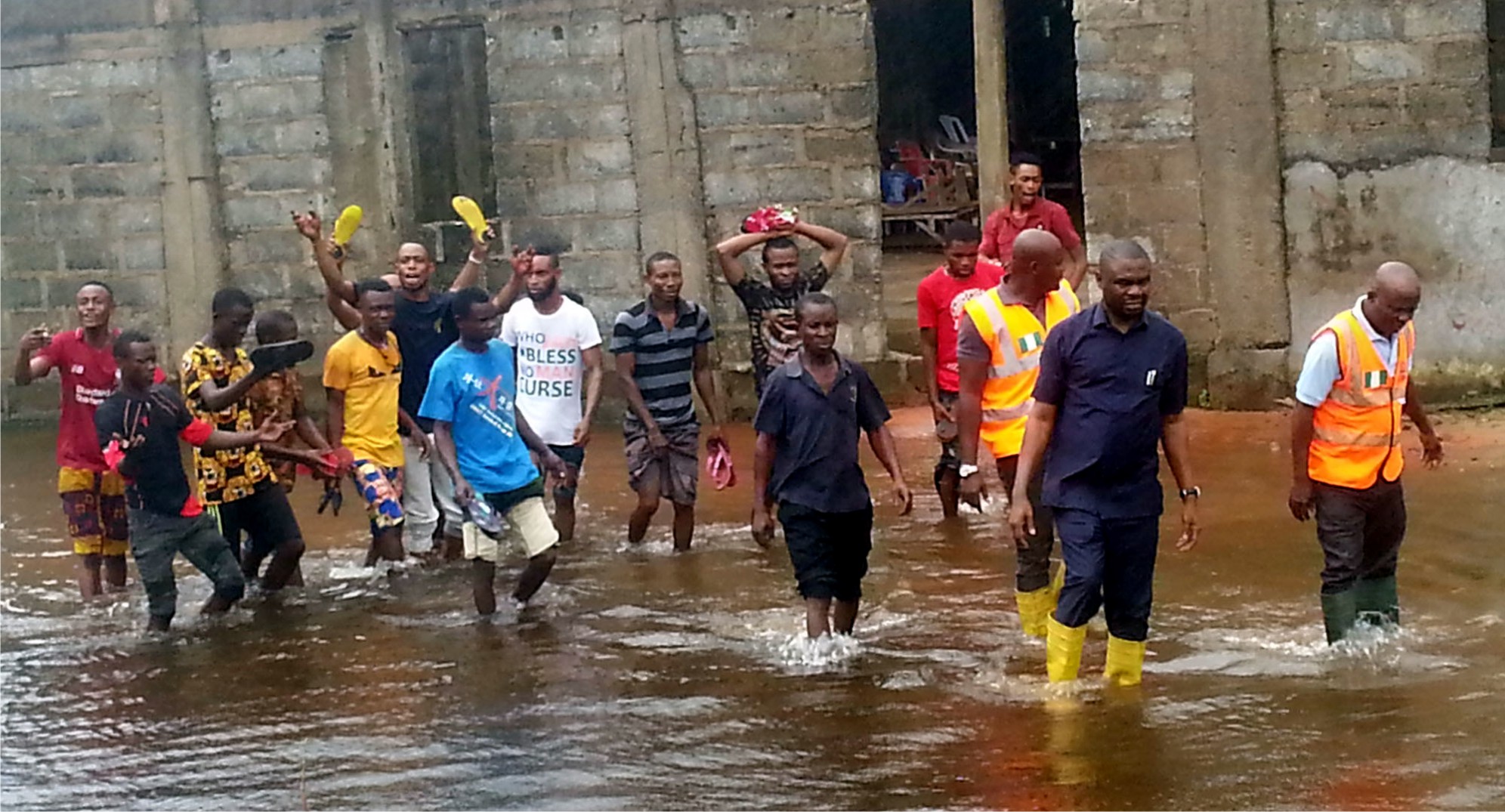Niger Delta
Floods: Monarchs Count Losses, Fault FG, IOCs Over Neglect

Traditional rulers in Bayelsa State have continued to count loses the state and its citizens have incured in the cause of the floods across the state.
Speaking at a press conference held at the instance of the State Traditional rulers council in Yenagoa, as part of efforts to further empathize with Bayelsans undergoing the harrowing impacts of the floods, the State Traditional Rulers, through its Chairman, the Ibenanaowei (Traditional ruler) of Ekpetiama Kingdom, HRM King Bubaraye Dakolo (Agara IV), called on the Federal Government to come to the aid of the State.
The Monarchs noted that while oil and gas explored and exploited from the state were used for the development of all parts of the nation, the Federal Government has, again, not shown enough commitment towards ameliorating the impacts of the flood in the State.
In the same vein, the royal fathers also condemned what they described as misinformed and unguarded comments credited to the Minister for Humanitarian Affairs, Disaster Management, and Social Welfare, Hajia Sadiyar Umar Farouq, on her statement that Bayelsa state was not in the 10 flood most impacted states in the nation.
“Today, we need not remind anyone that we know that oil and gas resources used to lubricate the wheels of governance in Nigeria comes from the bowels of the land mass on which we stand. I mean from the bowels of the Niger Delta region where Bayelsa State is located.
“We also need not reiterate that our kingdoms and clans, our flood ravaged kingdoms and clans constitute crude oil blocks owned by persons and business concerns which regrettably, we don’t own, and even though the ravaging floods were still overwhelming, the gas flares are still burning-hot in our kingdoms and clans.
“We, the Royal Fathers of Bayelsa State, have observed that not only did the 2022 flood unleash unprecedented havoc in the state and beyond, it has also opened the floodgates of ignorance on the subject of the misery floodwaters could unleash on a people who live on the flat arcuate lowlands adjacent the mighty Atlantic Ocean”, the monarchs said.
The Royal Fathers, who acknowledged that following the height of the floods, roads, schools, health, electricity and other public and private infrastructures in the state have been damaged, noted that the Federal Government’s complementary mitigation effort in the state have remained all-time low and conspicuously insufficient.
They, therefore, warned that if the Federal Government does not come to the aid of the state, post-flood diseases and ailments would be on the increase in the State.
While commending the State Governor, Senator Douye Diri, and his Deputy, Lawrence Ewhrudjakpo, as well as the state’s Flood Mitigation Committee, State cabinet members, the duo of federal legislators from the state, and members of the State House of Assembly for being at the forefront of cushioning the impact of the floods, the monarchs also added that farm lands and animals have all been destroyed by the floods.
They noted that the state has been totally seperated from other parts of the nation due to the cutting-off of the federal government’s East-West Road and other access roads to the state, saying it would cost billions to fix damaged infrastructure in the state.
“In the recent meeting of the Bayelsa State Traditional Rulers Council (BY TRC), we took turns in expressing the extreme ordeals we had to endure together with our subjects for over a month. We didn’t mince words in condemning the complete absence of agents of statutory Federal Government agencies and ministries saddled with the responsibilities of rendering assistance at our domains at times such as these.
“Rather, we’re seeing oil workers in their coveralls safe in their shuttles, going about their greasy, oily business, all over our flood ravaged state.
“Pitiably, there’s no evidence yet about any intervention from the oil industry to the flood ravaged people of Bayelsa State. Could it be that they also wished us all dead?
“Well, being natural swimmers, though distressed and displaced like never before, most of us are still alive”, the Royal fathers noted.
By: Ariwera Ibibo-Howells, Yenagoa
Niger Delta
Oborevwori Launches Medical Outreach For Children With Special Needs

Niger Delta
UniCal Commits To Nursing Education Dev In C’River

Niger Delta
Agency Demolishes Illegal Roadside Structures In Delta N8 by … Clears Street Traders

-

 Politics4 days ago
Politics4 days agoAPC Releases Adjusted Timetable For Nationwide Congresses, Convention
-

 Sports23 hours ago
Sports23 hours ago2026 WC: Nigeria, DR Congo Awaits FIFA Verdict Today
-
Sports4 days ago
DG NIS Wants NSC Board Constituted, Seeks Increased In Funding
-

 Business4 days ago
Business4 days agoCustoms Seek Support To Curb Smuggling In Ogun
-

 Featured4 days ago
Featured4 days agoINEC Proposes N873.78bn For 2027 Elections, N171bn For 2026 Operations
-

 Sports4 days ago
Sports4 days agoSWAN Rivers Set-up Five Functional Committees
-
News4 days ago
Police Bust Kidnapping Syndicate In PH
-
Sports4 days ago
NSC Disburses N200m Training Grants To 26 Athletes

